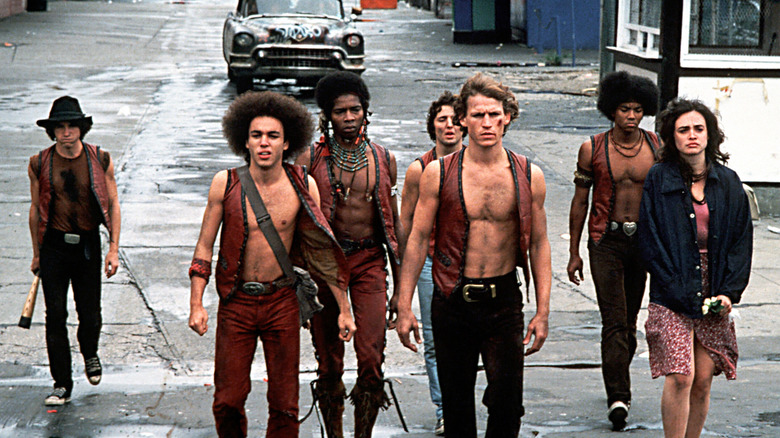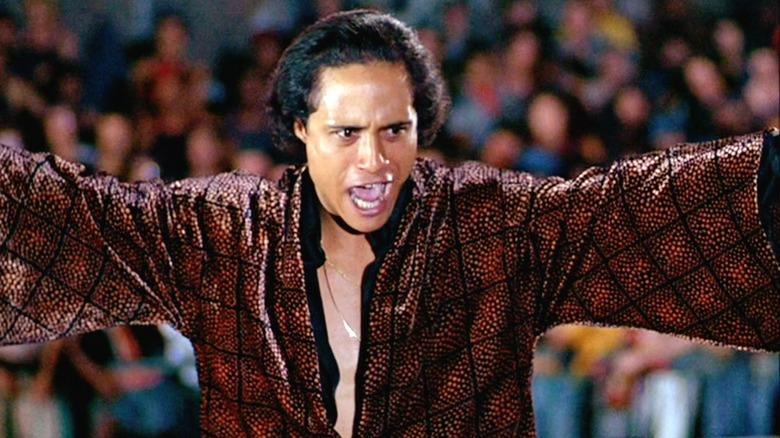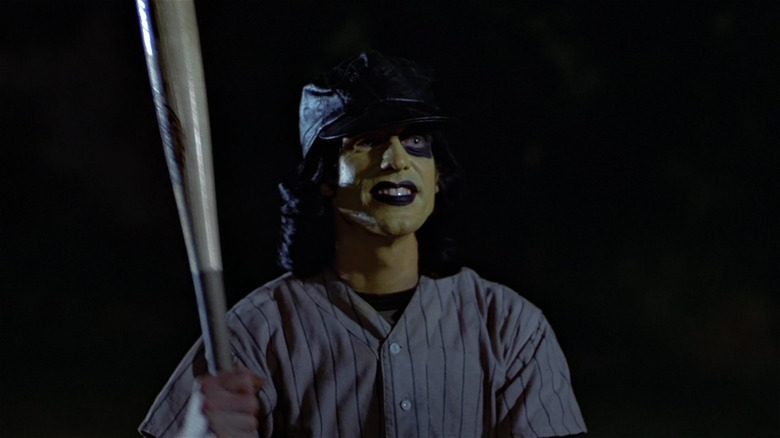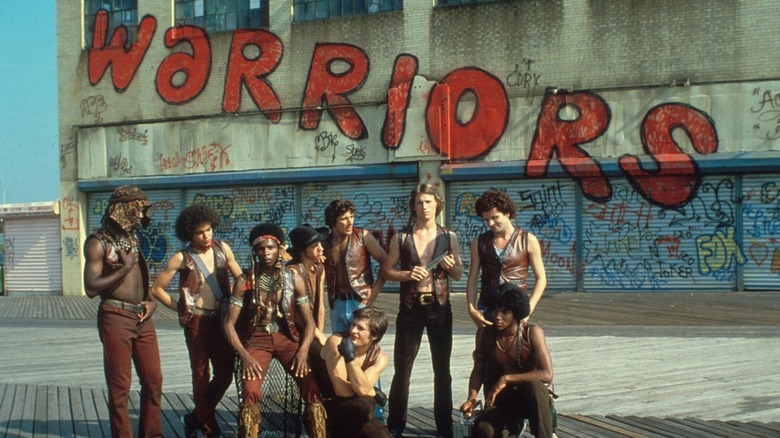The Warriors Controversy Explained
In the winter of 1971, dozens of New York gangs including the Savage Skulls, the Black Spades, the Immortals, the Majestic Warlocks, and the Spanish Daggers met in the gymnasium of the Hoe Avenue Boys Club in the Bronx to discuss a truce. This parley came after the murder of "Black Benji" of the Ghetto Brothers, who himself had tried to promote peace between the city's gangs. To ensure that there was no trouble at the summit, a gang member was positioned on the rooftop across from the venue with a rifle.
Although gang violence was common in the city at that time, there evidently was some taste for diplomacy. A youth worker called Eduardo Vincenty, aka, "Spanish Eddie," proposed the grand idea of forming a super-gang under the "Family Peace Treaty." As a means of settling conflicts, his scheme got the leaders of 68 gangs on board at a time when the NYPD estimated there were around 10,000 gang members in just the Bronx alone. Before his idea could fully come to fruition, Vincenty was transferred to Brooklyn and shot in the head while trying to stop a fight. He survived, but some of his colleagues suspected it was an attempt on his life for trying to unite the gangs.
These incidents would provide some background atmosphere for Walter Hill's 1979 cult classic, "The Warriors," a streamlined action thriller charting the odyssey of a small group of Coney Island toughs as they journey across New York after they are framed for the murder of a messianic gang leader, with all the city's other crews in vengeful pursuit.
While Hill himself envisaged the film as more of a dystopian fantasy than some realistic gangland thriller, the movie soon found itself embroiled in controversy for sparking violence.
What happens in The Warriors?
The Warriors, a small leather-waistcoated gang from Coney Island, attend a summit in a Bronx park called by Cyrus (Roger Hill), the charismatic leader of one of New York's most powerful gangs, the Riffs. Cyrus's grand scheme is for all the gangs to unite and control the city together, since they would significantly outnumber the police. Most of the attendees definitely seem to dig this idea, but the deranged leader of a rival gang shoots Cyrus dead and pins the murder on the Warriors.
The Riffs send out a message on the radio calling for the Warriors' heads and the city's other gangs start scouring the streets for them. Framed for the killing and miles from the safety of their home turf, leader Swan (Michael Beck) must get his beleaguered troops home alive, dodging cops and rivals along the way.
The basic plot of "The Warriors" is about as simple as they come, which suits Walter Hill's stripped-back style. He's more interested in mood, attitude, and style; shot on location during the summer nights of '78, it's a viscerally nocturnal movie, of spooky rubble-strewn neighborhoods that could be right out of "Escape from New York," graffiti-scarred subway trains, and neon reflected in rain-slicked streets. Then there are the colorful gangs, who register more as characters as a unit than most of the individual faces in the film. This is where the film clearly tips over into the fantastical, showcasing outrageous gangs like The Baseball Furies in their green face paint and sports uniforms, and the Hi-Hats, who dress like mimes. The Warriors themselves are a likable bunch, at least enough to keep us rooting them home, and their journey takes on a mythic quality as they are ambushed, attacked and waylaid.
Why was The Warriors so Controversial?
"The Warriors" opened in early February 1979 and two weeks later the New York Times reported:
"Despite sporadic acts of violence and vandalism in theaters around the country showing "The Warriors," a film about teen‐age gang violence in New York City, Paramount Pictures yesterday resumed print advertising for the high‐grossing film after a six‐day hiatus."
Paramount had pulled promotional material from radio and TV, and reduced adverts in the newspapers to just the film's title after a series of violent outbreaks at screenings. In some places, the results were fatal; two Californian youths were killed during fights in two different theaters, while in Boston another teenager was stabbed to death by a friend who had just seen the movie.
As Walter Hill said later in an interview with Esquire:
"I think the reason why there were some violent incidents is really very simple: The movie was very popular with the street gangs, especially young men, a lot of whom had very strong feelings about each other. And suddenly they all went to the movies together! They looked across the aisle and there were the guys they didn't like, so there were a lot of incidents. And also, the movie itself is rambunctious—I would certainly say that."
Fights were also reported in New York theaters, but police said that there was no increase in gang activity related to the movie. A volunteer group called the Magnificent 13 protested outside screenings outside the Loews State One Theater in Times Square after some kids allegedly harassed subway commuters after seeing the film. Although the film's violence is pretty tame by today's standards, the group felt that it was a dangerous picture, glamorizing violence that others might try to copy or emulate.
Aftermath and a Cult Classic
The precautions taken by Paramount had some effect and the violent incidents died down, with only a few minor scuffles reported after the initial ads were pulled. Hill claimed that Ed Koch, the mayor of New York City at the time, was supportive of the film, and "The Warriors" even picked up a fan in the White House. President Ronald Reagan called Michael Beck personally to say how much he enjoyed the film at a Camp David screening.
As always, there's nothing like a bit of controversy to pump up a movie's box office figures. Paramount started running a new ad campaign that focused on positive reviews from high-profile critics like Pauline Kael, who was one of the few contemporary critics to really get behind the movie. It went on to make $22.5 million against its $4 million budget.
Since then, "The Warriors" has gone become a popular cult classic that has also featured on Entertainment Weekly's 2008 list "The 25 Most Controversial Movies Ever," beating the likes of "Freaks," "Cannibal Holocaust," and "Do the Right Thing" to the #14 spot. Its enduring legacy is a source of pride to Hill:
"It's certainly a pleasant thing to think that something you did so many years ago still resonates. It's one of those movies that people continue to ask me about and talk about with a smile on their face, so it's a good feeling. It makes you really understand and believe that people like a good story."
"The Warriors" just looks better with age, one of those great '70s New York movies like "Dog Day Afternoon" and "The Taking of Pelham One Two Three." Thankfully, talk of a remake has gone quiet over the past few years — that's something I definitely could not dig.



